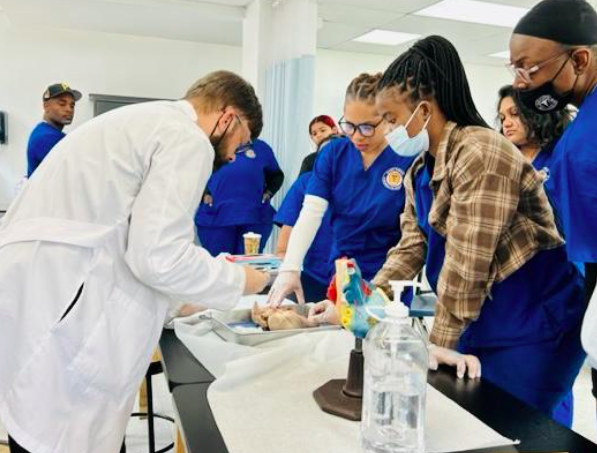
To become a Medical Assistant, students typically need to complete a combination of medical and administrative coursework. The specific classes required may vary depending on the program and institution, but here are some common courses that students may take in a Medical Assistant program:
- Medical Terminology: This course introduces students to the language and vocabulary used in healthcare. It covers the basics of medical terms, abbreviations, and definitions, which are essential for effective communication and understanding in a medical setting.
- Anatomy And Physiology: This course provides an overview of the structure and function of the human body. Students learn about different body systems, their organs, and how they work together. Understanding anatomy and physiology is crucial for Medical Assistants to comprehend medical conditions, procedures, and treatments.
- Medical Office Procedures: This course focuses on the administrative aspects of working in a medical office or clinic. Students learn about appointment scheduling, medical record management, insurance billing and coding, electronic health records (EHRs), and other administrative tasks commonly performed by Medical Assistants.
- Medical Law And Ethics: This course covers the legal and ethical aspects of healthcare. Students learn about patient confidentiality, informed consent, professional boundaries, and the laws and regulations that govern medical practice. Understanding medical law and ethics is essential for Medical Assistants to provide care within legal and ethical boundaries.
- Pharmacology: This course introduces students to the basics of medication administration and safety. Students learn about different drug classifications, dosage calculations, common medications, and potential side effects. Knowledge of pharmacology is important for Medical Assistants who may be responsible for administering medications or providing patient education on medication use.
- Clinical Procedures: This course focuses on the clinical skills and procedures performed by Medical Assistants. Students learn about taking vital signs, performing basic laboratory tests, assisting with physical examinations, Drawing blood (phlebotomy), sterilization techniques, and other clinical tasks. This hands-on training prepares students to assist healthcare professionals in providing direct patient care.
- Medical Assisting Internships: Many Medical Assistant programs include an internship component, where students gain practical experience in a healthcare setting under the supervision of a healthcare professional. The Allen School of Health Sciences internship component is 275 hours and is part of our medical assistant program. This allows students to apply their knowledge and skills in a real world setting and gain valuable on the job experience.
These are just some of the common classes that students may take in a Medical Assistant program. It’s important to research specific programs and their curriculum requirements to get a comprehensive understanding of the coursework involved.
Learn more about the classes you will take as part of your Medical Assistant program. The Allen School of Health Sciences is enrolling now for classes starting soon. Contact us today! www.allenschool.edu
